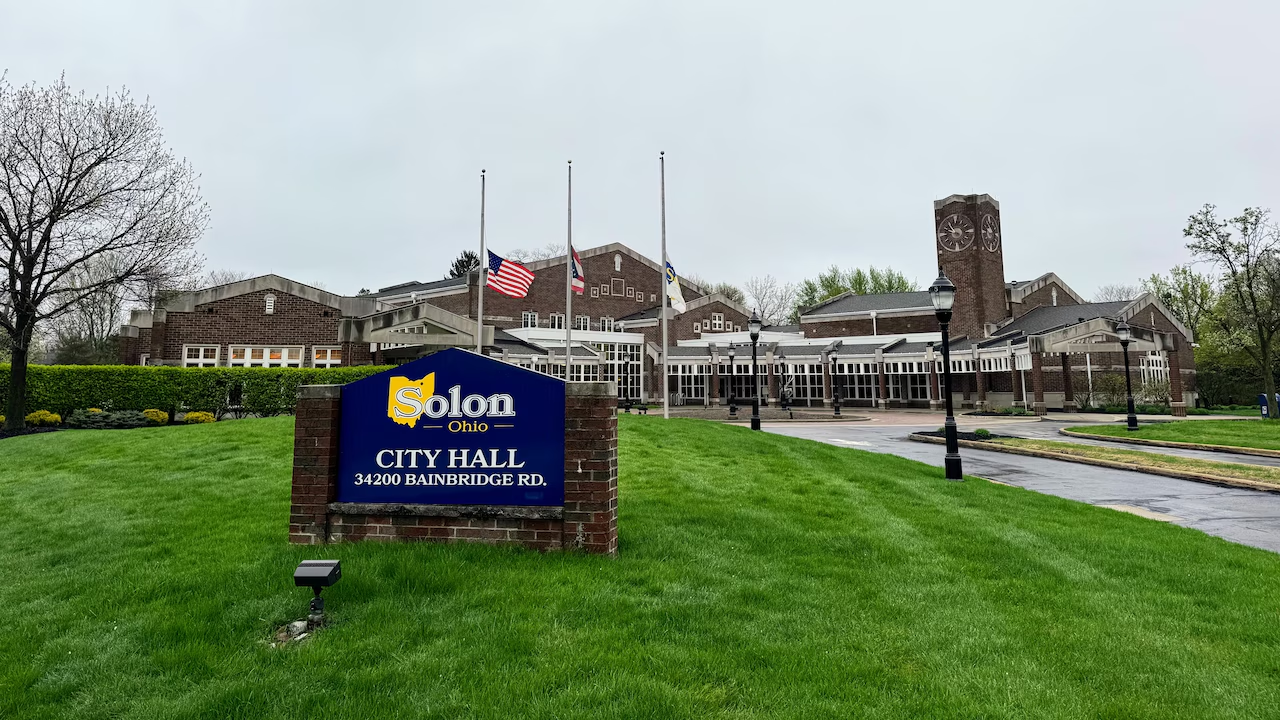City officials in Solon, Ohio, are recommending new zoning regulations aimed at controlling the proximity of marijuana dispensaries and vape shops. This initiative seeks to prevent over-concentration, safeguard public health, and minimize youth exposure to cannabis and vape marketing. A proposed text amendment to Solon’s zoning code will be discussed at the upcoming Planning Commission meeting on June 24. If the commission approves the amendment, it will then require City Council approval to take effect.
The proposed regulations would enforce a minimum distance of three miles between any marijuana dispensary and any vape shop, regardless of the zoning district. This rule would apply to new businesses or existing ones that relocate or change their use. Currently, Solon has two marijuana dispensaries in the process of opening on Aurora Road, located about one mile apart. Although the state mandates a minimum distance of one mile between dispensaries, city officials argue this does not adequately address local clustering or municipal boundaries.
According to Michael Ionna, Solon’s director of planning and community development, the new amendment would allow for only one dispensary in the city, classifying the existing two as legal nonconforming uses. If either of these businesses were to close, they would not be able to reopen or be replaced by another dispensary. Ionna noted, “These two businesses have met all existing state and local requirements. They would be allowed to continue operating, but if one were to close, it would not be permitted to reopen.”
Community feedback has played a significant role in shaping these proposed regulations. Residents, City Council members, and Mayor Ed Kraus expressed concerns about the impact of clustering on neighborhood character and commercial districts. Ionna stated, “Clear concerns were expressed about the potential over-concentration of marijuana dispensaries and the impact that clustering could have.”
A similar situation exists with vape shops in Solon, where three retailers are currently located within 550 feet of each other at the intersection of SOM Center and Aurora roads. The city has also noted several violations concerning signage, lighting, and the use of non-permitted banners and flags. The proposed amendment for vape shops would mirror the dispensary rule, enforcing a minimum distance of three miles between any two vape outlets. Existing vape shops would also be classified as legal nonconforming uses.
The city documents indicate that the goal of these amendments is to prevent over-concentration of vape retailers in key commercial areas, improve visual aesthetics, encourage better compliance with local codes, and reduce public exposure to vape-related marketing.
Ionna emphasized the city’s intention to balance adult access to cannabis products with the protection of youth and community standards. He stated, “While the City recognizes the legitimate medical uses and economic opportunities associated with marijuana, it also has a responsibility to protect youth and uphold public health.” The proposed regulations aim to create a framework that ensures safe access for adults, particularly those with medical needs, while prioritizing neighborhood well-being and youth safety.
If the zoning amendments are approved, the city plans to enforce compliance through strict zoning reviews and regular inspections. Ionna highlighted the commitment of city staff to ensure dispensaries operate responsibly in alignment with community expectations. He clarified that the regulations are not designed to eliminate marijuana dispensaries altogether, noting that both state and local voters have approved legalization. “It’s about making sure we do it the right way,” he added. “The goal was to build a responsible framework that ensures safe access for adults.”
The discussion of these proposed amendments will continue at the Planning Commission meeting, as officials work to establish a regulatory environment that meets both business needs and community standards.




